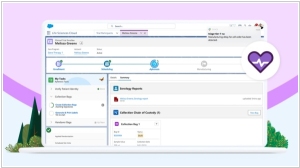CloudStack vs VMware vCloud
May 18, 2023 | Author: Michael Stromann
8
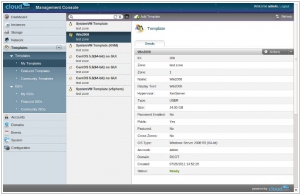
Apache CloudStack is open source software designed to deploy and manage large networks of virtual machines, as a highly available, highly scalable Infrastructure as a Service (IaaS) cloud computing platform. CloudStack is used by a number of service providers to offer public cloud services, and by many companies to provide an on-premises (private) cloud offering, or as part of a hybrid cloud solution.
11
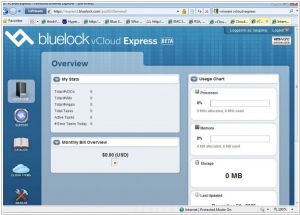
Start moving toward secure cloud computing with VMware vCloud solutions and services. Leverage the power of cloud computing while retaining the flexibility and open standards to support your existing IT infrastructure. Enabling IT as a service through cloud computing gives you a more efficient, flexible and cost-effective model.
CloudStack and VMware vCloud are both cloud computing platforms, but they differ in their architecture, features, and target audience. CloudStack is an open-source cloud management platform that allows organizations to create and manage private or public clouds. It provides a complete stack of cloud orchestration and management capabilities, including compute, storage, networking, and user management. CloudStack is known for its flexibility and scalability, making it a popular choice for organizations seeking a customizable and open-source cloud solution. On the other hand, VMware vCloud is a cloud computing platform that extends VMware's virtualization technology to the cloud. It enables organizations to create and manage virtualized infrastructure in a cloud environment using familiar VMware tools and workflows. VMware vCloud is well-suited for organizations that have invested heavily in VMware virtualization technologies and want to extend their infrastructure to the cloud seamlessly.
See also: Top 10 Public Cloud Platforms
See also: Top 10 Public Cloud Platforms
CloudStack vs VMware vCloud in our news:
2019. VMware completes $2.7 billion Pivotal acquisition
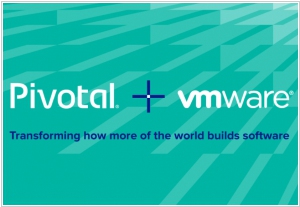
VMware has successfully completed the $2.7 billion acquisition of Pivotal, a private cloud platform. This acquisition serves as another crucial step for VMware as it strives to transition from solely a virtual machine company to a cloud-native provider capable of managing infrastructure across various environments. This addition aligns with VMware's recent acquisitions of Heptio and Bitnami, further reinforcing its strategic vision. The ultimate goal is to seamlessly integrate these developments into VMware Tanzu, a comprehensive management platform designed to unify Kubernetes containers and VMware virtual machines.
2017. VMware Cloud is now live on Amazon Web Services
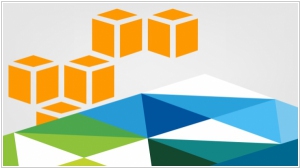
Last autumn, VMware and AWS announced a strategic partnership, and now they have unveiled a unified solution for enterprises called VMware Cloud on AWS. VMware Cloud on AWS offers customers a seamlessly integrated hybrid cloud environment that maintains consistent architecture, capabilities, and operational experience across their on-premises vSphere-based infrastructure and AWS. Although AWS operates its own virtual machines (VMs), they differ from those used by VMware in data centers. This disparity poses management challenges for companies seeking to utilize both platforms. By enabling organizations to migrate to AWS while retaining their VMware VMs in the public cloud, they can enjoy the benefits of both worlds without encountering management complexities.
2015. VMware will make Google Cloud Platform available to its customers
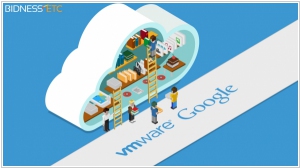
Google and VMware have joined forces to offer selected services from the Google Cloud Platform to VMware customers through vCloud Air, VMware's hybrid cloud platform. Later this year, vCloud Air users will gain access to Google's BigQuery analytics, Google Cloud Storage, as well as Google's Datastore and DNS services. Other Google services may also become available in the future. This collaboration can be seen as a win for both companies. VMware gains four valuable Google services, including the robust BigQuery analytics, which can help attract enterprise customers. Meanwhile, Google has the opportunity to showcase its top-notch intellectual property to the enterprise cloud users it seeks. Google aims to strengthen its hybrid cloud offerings, while VMware aims to demonstrate its cloud platform's compatibility with major players like Amazon Web Services (AWS).
2014. VMware's cloud to support Docker, Google and Pivotal containers

VMware is collaborating with Docker, Google, and Pivotal to ensure seamless compatibility between container technology and its virtualization technology. This joint effort will enable developers and operations staff to utilize the Docker Engine alongside VMware's vSphere hypervisor and vCloud Air environment. VMware will also engage in collaborative projects with Docker on various open-source container initiatives within the Docker platform. The company is committed to ensuring that future Docker projects seamlessly integrate with the broader VMware platform. Additionally, VMware's software will effectively support Google's Kubernetes container management system. In its partnership with Pivotal, VMware has already been leveraging containers in conjunction with virtual machines as part of its application development platform since 2011.
2012. Cloud Computing benefit? Working from home in the nude

Citrix (one of the leading players on the Cloud Computing market) wondered what ordinary people think about Cloud Computing. It interviewed a thousand of ordinary Americans, and here's what they get. Only 16 percent correctly responded that Cloud Computing is a computer network to store, access and share data from Internet-connected devices. Other answers included: "An actual fluffy white Cloud", "Something related to the weather", "A pillow", "Outer space", "A movie", "A place to meet", "Toilet paper". 54 percent of respondents claim to never use Cloud Computing (although judging by the answers to other questions, 95% of them actually used). ***
2012. Surprise! VMWare has joined OpenStack
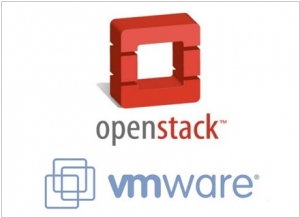
Recently we found out that the open cloud platform alliance OpenStack includes several members from EMC. It was a surprise, because EMC owns VMWare - the direct competitor of OpenStack. We thought that it was a little misunderstanding in the Swedish family EMC-VMWare. But this wasn't the last surprise in this story. In the end of the last week, VMWare personally became the "Gold member" in OpenStack. (Recall, OpenStack was founded two years ago in order to struggle against the dominance of Amazons's public cloud and VMWare's data-center cloud management systems). Together with VMWare two more giants: Intel and NEC joined OpenStack on Friday. So now, on the cloud platform market we have the confrontation: Amazon vs "Everyone else". You may think that the forces are not equal, but ... ***
2012. OpenStack launches. CloudStack departs. Amazon adapts SAP. Azure rebrands
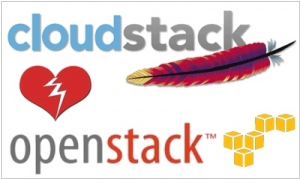
Here is the news digest from the leading cloud platforms. First of all, the open-source platform OpenStack (aka Linux for the clouds) which had been developed for two years by the alliance of IT giants (Rackspace, NASA, Citrix, Intel, AMD, Cisco, Dell, HP, IBM ...) - finally comes to production. Since May 1, it was adapted by RackSpace for its service Rackspace Cloud Files and last week HP launched the public beta of its HP Cloud platform, based on OpenStack. However, a week before the launch the trouble (common for open-source projects) occurred with OpenStack. Citrix, which has been one of the first participants in OpenStack, suddenly decided to grant its own cloud platform - CloudStack - to Apache Software Foundation. Thus, CloudStack not flowed into OpenStack but became a rival project. Citrix explained this decision by the slow OpenStack development and unwillingness of other parties to integrate with Amazon Web Services APIs. ***
2011. Citrix acquired cloud platform Cloud.com

Virtualization and Cloud Computing have become closely intertwined technologies in recent years, with market leaders in virtualization striving to establish themselves as leading providers of cloud platforms. Microsoft introduced Windows Azure, VMWare launched vCloud, and most recently, Cloud Foundry entered the scene. Citrix, the third giant in virtualization, has now made its move into the Cloud. Until now, Citrix primarily supplied software for private clouds without its own cloud infrastructure. However, today, Citrix acquired the cloud provider Cloud.com for an estimated amount between $200 and $250 million. Cloud.com boasts an impressive client roster including Zynga, Tata, and GoDaddy. Notably, Cloud.com leverages the open-source platform OpenStack as its cloud operating system, which was developed by an alliance led by RackSpace. Citrix is also a participant in this alliance and, following the acquisition of Cloud.com, plans to continue supporting OpenStack and integrating it with its own virtualization technologies.
2011. VMware wants to revolutionize PaaS market
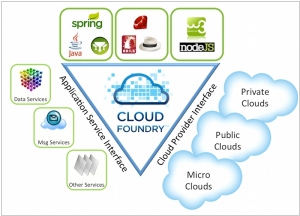
We have already noted that PaaS (Platform as a Service) - is the future of cloud platforms. For now the PaaS market is dominated by Salesforce (Force.com), Microsoft (Windows Azure) and Google (Google App Engine). Recently Amazon also entered this space with AWS Elastic Beanstalk. Of course VMWare also has its own plans regarding this market. Like Amazon, VMWare still paid more attention to another cloud technology - IaaS (Infrastructure as a Service). Its product vCloud enables service providers and enterprises to create cloud platforms that mimic Amazon EC2. But, frankly speaking, VMWare hasn't achieved great success in the IaaS-space so far, because it didn't offer something revolutionary. Having analyzed these mistakes, the company is now entering the PaaS market. And here it really wants to make a revolution. ***
2010. VMWare wants to become Microsoft of the Cloud Computing era
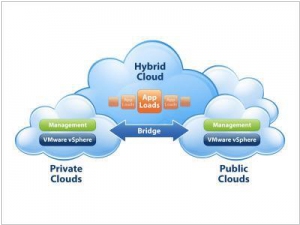
Previously, when enterprise software was running on servers and desktops, Microsoft ruled the IT market. It supplied the operating systems for servers and desktops, as well as tools for developing applications for these OS. As the cloud technologies emerge, servers and desktops are no longer the central objects of IT infrastructure. Software moves to private and public clouds. Desktops are used just as thin clients (terminals with a browser) and the need in servers disappears at all. And since the basis of cloud technology is virtualization - the power goes to the company, that owns 80% of the virtualization market - VMWare. ***


